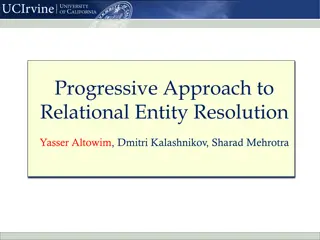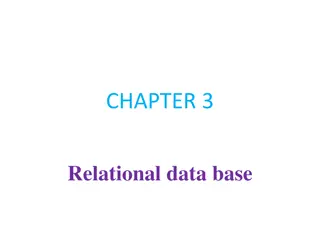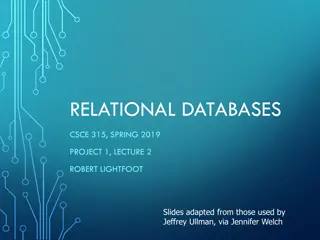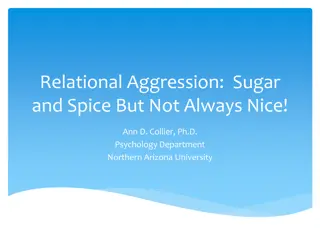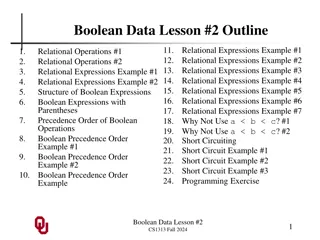
Conceptualization and Treatment of Psychosis: A Relational Clinical Stance
Explore the contextualization, conceptualization, and treatment of psychosis through a relational clinical stance. Delve into philosophical, psychiatric, and sociocultural frames to understand the complexities of intrapsychic phenomena, treatment approaches, and evolving perspectives on pathology and normativity.
Download Presentation

Please find below an Image/Link to download the presentation.
The content on the website is provided AS IS for your information and personal use only. It may not be sold, licensed, or shared on other websites without obtaining consent from the author. If you encounter any issues during the download, it is possible that the publisher has removed the file from their server.
You are allowed to download the files provided on this website for personal or commercial use, subject to the condition that they are used lawfully. All files are the property of their respective owners.
The content on the website is provided AS IS for your information and personal use only. It may not be sold, licensed, or shared on other websites without obtaining consent from the author.
E N D
Presentation Transcript
TO WA R D A R E L AT I O N A L C L I N I C A L S TA N C E Contextualizing Conceptualization and Contextualizing Conceptualization and Treatment of Psychosis Treatment of Psychosis Elise Manning, M.S.W., LICSW Elise Manning, M.S.W., LICSW January 23, 2025 January 23, 2025
E N T E R I N G T H E R O O M W H O L E B E I N G S / E M B O D I E D / R E L AT I O N A L G R O U N D I N G T H E B O D Y + M I N D
HOPES + INTENTIONS To learn together, to unlearn, to expect and embrace moments of unknowing and uncertainty F R A M I N G T H E L E A R N I N G S PA C E To acknowledge limitations of knowing and to decenter from expertise To stay attentive to who is in the room To acknowledge the pedagogical dilemma
CONTEXTUALIZING TREATMENT psychiatric / philosophical / sociocultural frames power + positionality TOWARD A RELATIONAL STANCE attending stage + embodied presence the therapeutic relationship treatmentvalues + priorities
FRAMES OF MEANING PHILOSPHICAL / PSYCHIATRIC / SOCIOCULTURAL FRAMES Philosophical conceptualizations (ontologies) of intrapsychic phenomena have varied across time and place Neurobiological conceptualizations of intrapsychic phenomena continue to evolve as research progresses C O N T E X T UA L I Z I N G T R E AT M E N T Borders of pathology what counts as a symptom of a disorder evolve and shift across time and place Perceptions of deviance versus normativity are informed by sociocultural context (Badenoch, 2008; D az-Garrido, 2023; Foucault, 1961/2006; P rez- lvarez & Garc a-Montes, 2023)
TREATMENT FRAMES Subject Management / Carceral Response C O N T E X T UA L I Z I N G T R E AT M E N T Symptom Mitigation / Biomedical Response Symptom Integration / Community- and Person-Centered Response
SUBJECT MANAGEMENT / CARCERAL FRAME Subduing/removing the subject Long-term institutionalization, isolation from society, fatalistic prognoses Revolving door phenomenon post introduction of first-generation antipsychotics (D az-Garrido, 2023; Foucault, 1972; Whitaker, 2023)
SYMPTOM MITIGATION / BIOMEDICAL FRAME Subduing/mitigating the symptoms to integrate client in society Outpatient medical model incorporating psychotropics, individual and group psychotherapy Case management, occupational/vocational supports, wrap-around services (D az-Garrido, 2023; P rez- lvarez & Garc a-Montes, 2023; Whitaker, 2023)
SYMPTOM INTEGRATION / PERSON-CENTERED FRAME Integration into person s self-experience, integration within community Depathologizing of non-consensus realities/perceptual experiences and their interpretations Milieu settings, peer- and community-based support, case management, occupational/vocational supports, wrap-around services Open Dialogue Approach, Hearing Voices Network, Wildflower Alliance (Davidson et al., 2005; D az-Garrido et al., 2023; Ganzer & Ornstein, 2002; Seikkula et al., 2006; ; Valero-Aguayo et al., 2023)
TREATMENT FRAMES Subject Management / Carceral Response N O N - L I N E A R N O N - D I S C R E T E Symptom Mitigation / Biomedical Response S E R V E D I F F E R E N T F U N C T I O N S Symptom Integration / Community- and Person-Centered Response
Power and universal pathologizing across domains Social and medical narratives have reinforced totalizing of identity as merged with pathology / languaging Consider the impact of the absence of validation and normalization of one s interiority, of one s self-narrative, of one s experience of the world beyond the borders of self P O W E R + P O S I T I O N A L I T Y Compounding impact of trauma + oppression with psychosis Disparate rates across racial groups (Anglin, 2023) Disparate rates across gender (Barr et al., 2021) Racialized / gendered trauma and psychosis Gaslighting of oppression versus paranoid perception (Anglin, 2023; Anglin & Lui, 2023; Barr et al., 2021)
POWER + POSITIONALITY Compounding the power differential in the clinical encounter Consider the intrasubjective space and intersectional identities Consider the role of interpretation and analysis and conceptualization Range in meanings/definitions/narratives/etiological beliefs or assumptions Range in what is reasonable belief/perception vs disordered perception Diversity in languaging and articulation of interior processes Diversity in affective presentation
We foreclose on people were not as connected to. We foreclose more than on someone who could be our brother. We foreclose on someone who causes fear, and let s be honest, that s often young black men. -DEIDRE ANGLIN, PHD Associate Professor of Clinical Psychology at The City College of New York as quoted in The New York Times (Bergner, 2024)
ATTENDING STAGE EMBODIED PRESENCE THERAPEUTIC RELATIONSHIP TO WA R D A R E L AT I O N A L S TA N C E TREATMENT VALUES TREATMENT PRIORITIES TREATMENT APPROACHES
Power + Positionality Decentering Expertise Biases + Artifacts Awake AT T E N D I N G S TA G E Embodied Awareness Persistent Curiosity Nervous System Regulation
Internal Posture Inventive Grounding Nimble E M B O D I E D P R E S E N C E With + Beside Attentive to Internal Shifts Holding + Constancy Spacious Containment
Alliance Co- Flexible / Responsive regulation T H E R A P E U T I C R E L AT I O N S H I P Primacy of Attachment Auxiliary Ego Embodied Trust Holding Projections
Informed intervention Internal integration + self-regulation Collaborative Relational + person- centered T R E AT M E N T VA L U E S Uncoupling symptoms from totalizing self-concept Maximum Self- Determination + Autonomy Decentering diagnosis from personhood
Early detection Integrated treatment modalities Collaboration with treatment team Primacy of therapeutic relationship and embodied trust- building T R E AT M E N T P R I O R I T I E S Aiming toward diagnostic specificity Social Integration + Connection Attending to fluctuations in insight and/or dysregulation
RELATIONAL TREATMENT SPECTRUM Intrapsychic relationality: unfolding the relationship between the voice hearer and voice (Dellazizzo et al., 2022, p. 2002) CBT / Relating Therapy Visualization and mindfulness work T H E R A P E U T I C A P P R O A C H E S Open Dialogue Approach Acceptance and Commitment Therapy Narrative Therapy Ambiguous Loss frame / grief work Internal Family Systems / parts work And so many more (Davidson et al., 2005; D az-Garrido et al., 2023; Ganzer & Ornstein, 2002; Seikkula et al., 2006; Valero-Aguayo et al., 2023)
REFERENCES Anglin D. M. (2023). Racism and Social Determinants of Psychosis. Annual review of clinical psychology, 19, 277 302. https://doi.org/10.1146/annurev-clinpsy-080921-074730 Anglin, D. M., & Lui, F. (2023). Racial microaggressions and major discriminatory events explain ethnoracial differences in psychotic experiences. Schizophrenia research, 253, 5 13. https://doi.org/10.1016/j.schres.2021.10.014 Badenoch, B. (2008). Being a Brain-Wise Therapist: Practical Guide to Interpersonal Neurobiology. W.W. Norton & Company. Barr, S. M., Roberts, D., & Thakkar, K. N. (2021). Psychosis in transgender and gender non-conforming individuals: A review of the literature and a call for more research. Psychiatry research, 306, 114272. https://doi.org/10.1016/j.psychres.2021.114272 Bergner, D. (2024, December 4). America s Hidden Racial Divide: A Mysterious Gap in Psychosis Rates. The New York Times. https://www.nytimes.com/2024/12/03/magazine/psychosis-schizophrenia-risk-race.html Boss, P. (2006). Loss, Trauma and Resilience: Therapeutic Work with Ambiguous Loss. W. W. Norton & Company.
REFERENCES Davidson, L., Tondora, J., Staeheli, M., O Connell, M., Frey, J., and Chinman, M.(2005). Recovery Guides: An Emerging Model of Community-Based Care for Adults with Psychiatric Disabilities.Handbook of Community-Based Clinical Practice. Cary, NC: Oxford University Press. Dellazizzo, L., Giguere, S., Leveille, N., Potvin, S., & Dumais, A. (2022). A systematic review of relational-based therapies for the treatment of auditory hallucinations in patients with psychotic disorders. Psychological Medicine, 52(11), 2001 2008. D az-Garrido, J. A., Z iga, R., Laffite, H., & Morris, E. (Eds.). (2023). Psychological Interventions for Psychosis: Towards a Paradigm Shift (1st ed. 2023.). Springer International Publishing. Foucault, M. (1961/2006). History of Madness. Routledge. Ganzer, C., and Ornstein, E. (2002). A Sea of Trouble: A Relational Approach to the Culturally Sensitive Treatment of a Severely Disturbed Client. Clinical Social Work Journal, Vol. 30, No. 2, Summer. P rez- lvarez, M., Garc a-Montes, J.M. (2023). Toward a Change of Paradigm in Psychosis: A Contextual Phenomenological Approach. In: D az-Garrido, J.A., Z iga, R., Laffite, H., Morris, E. (eds) Psychological Interventions for Psychosis. Springer, Cham. https://doi.org/10.1007/978-3-031-27003-1_1
REFERENCES Seikkula, J., Aaltonen, J., Alakare, B., Haarakangas, K., Ker nen, J., & Lehtinen, K. (2006). Five-year experience of first- episode nonaffective psychosis in open-dialogue approach: Treatment principles, follow-up outcomes, and two case studies. Psychotherapy Research, 16(2), 214 228. Valero-Aguayo, L., Valenzuela-Hern ndez, M., Oneca de Miguel, S., Ruiz-S nchez, J.J., D az-Garrido, J.A. (2023). Advocating for Integrated Therapy in the Social Environment to Treat Schizophrenia Problems. In: D az-Garrido, J.A., Z iga, R., Laffite, H., Morris, E. (eds) Psychological Interventions for Psychosis. Springer, Cham. https://doi.org/10.1007/978-3-031-27003-1_5 Whitaker, R. (2023). Rethinking Antipsychotics: Evidence-Based Medicine Calls for a Dramatic Change in Their Use. In: D az- Garrido, J.A., Z iga, R., Laffite, H., Morris, E. (eds) Psychological Interventions for Psychosis. Springer, Cham. https://doi-org.libproxy.smith.edu/10.1007/978-3-031-27003-1_3

